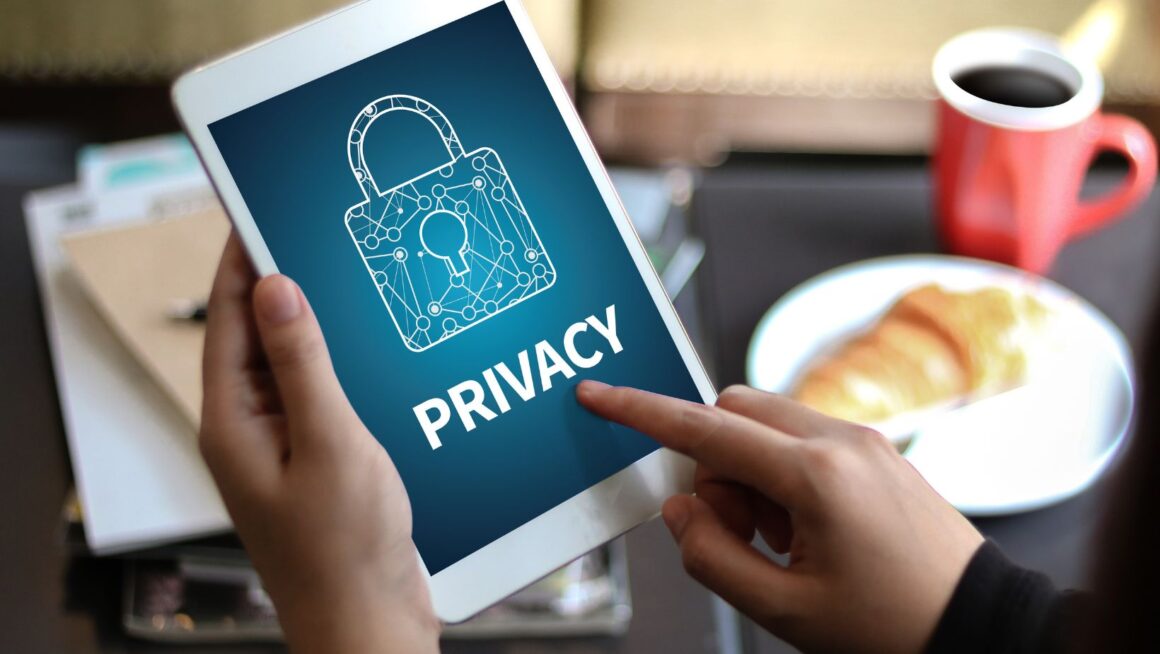Online privacy is critical in today’s digital world. With the rise of data breaches, your personal information can be exposed to criminals easily. Online privacy is your ability and right to control your personal information. This includes both what you share online and how the services you use handle your data.
While some of this depends on your actions, a lot also depends on laws and policies designed to protect you. However, taking your own precautions can go a long way in keeping your data safe.
Share Less Information with Apps and Services
One of the best ways to protect your information is to share less of it. This may seem simple, but it’s a powerful step in keeping your data safe from scammers. A good starting point is reviewing your activity on social media. Many apps and services collect data about who you are, what you like, and what you do online. This information forms your online footprint, which can be used by scammers to access your sensitive data.
When using social media, be mindful of the details you share. It’s easy to overshare without realizing it, but once your information is out there, it’s hard to take back. Reduce the amount of personal data you expose and always be aware of the data collection policies of any app or service you use. Remember, the less information you provide, the harder it is for someone to misuse it.
Use a VPN to Hide Your Browsing History
Your internet service provider (ISP) and web browser collect data on your online activities. This information can be sold to advertisers, shared with the government, or even used by scammers. Even if you’re using private or incognito mode, your browsing history may still be tracked.

A Virtual Private Network (VPN) encrypts traffic on your internet. It prevents third parties from seeing your online activities. Using a VPN is especially important when you’re connected to public Wi-Fi networks, such as at a coffee shop or airport. These networks are usually not secured.
Most online sites are VPN-friendly which explains why most online casino players prefer using a VPN when playing at online gambling sites. In addition to safeguarding your actual location, using a VPN can also help you access casinos that might be restricted in your country.
However, this is only recommended if online gambling is legal in your state. If you’re in a US state where real money gambling is restricted, sweepstakes casinos provide a great alternative. These platforms allow you to enjoy your favorite casino games by using sweep coins, making it possible to play without wagering real money
Use Strong Passwords that are Unique with 2FA
Creating strong passwords is the cornerstone of defense against cyber criminals such as identity thieves. Just think about how much personal information is stored in your email account — everything from bank account details to your Social Security number (SSN) could be at risk. If a hacker gains access to your email, they can use it to reset passwords for other accounts, leading to even more damage.
Use strong and unique passwords to protect your accounts. A strong password should include a mix of letters, numbers, and special characters. Make sure it has at least 12 characters. Do not use information such as your name or date of birth because they are easily guessable.
Apart from unique passwords, activate two-factor authentication (2FA) on all your accounts. This technique boosts security by requiring a second form of verification. To sign in, you’ll need to verify your identity using an authentication app or a text message code. With this strategy, even if a third party steals your password, they will not manage to log into your account without the second factor.
Tighten Privacy Settings on Your Social Media Accounts
No need to deactivate your social media handles to improve your online privacy. A simple way to protect your information is by reviewing and tightening the privacy settings on your accounts. Each social media platform has unique privacy settings, and it’s important to understand what you’re sharing and with whom.

When adjusting your privacy settings, consider turning off automatic geolocation data on your posts, photos, and comments. Additionally, be aware that your likes, shares, and comments on other people’s posts may be visible to others, even if your account is set to private. These interactions can show up in search results and provide more information about you than what you intended.
Remove Unused Mobile Apps and Browser Extensions
Mobile apps and browser extensions can be convenient tools, but they also pose a privacy risk if not managed properly. Many apps and extensions collect data from your device, and their privacy policies can change at any time. If there is a tool that you are not actively using, just delete or remove it.
For example, Unroll.me was a popular app that helped users manage their email subscriptions. However, following investigations, it was discovered that the app was scanning users’ emails and selling the data. This serves as a reminder that if you don’t understand how an app makes money, it might be through your data.
We recommend only downloading apps and extensions from reputable sources to avoid such cases. Also, research the app’s privacy policies and user reviews before downloading. Lastly, regularly remove unused apps and extensions
Final Word
Protecting your digital privacy in the age of data breaches requires a proactive approach. By sharing less information, using strong passwords, tightening your social media privacy settings, removing unused apps, and using a VPN, you can significantly reduce your risk of having your personal information exposed. While no method is foolproof, these steps can help you stay safer online. Remember, you have the right to your privacy, so be in charge of it today.



